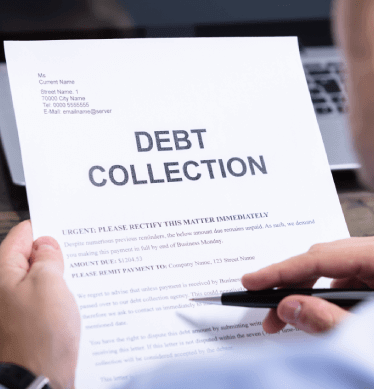You discover that you are being sued by a debt collector. Now what?
Act immediately! If you ignore the lawsuit notification, you could end up with a default judgement. Seek legal counsel and know your rights.
What Types of Debt Does the FDCPA Cover?
The Fair Debt Collection Practices Act (FDCPA) is a federal law which limits actions of third-party debt collectors who attempt to collect debts on behalf of another person or company. This law governs how debt collectors can contact debtors; it even goes as far as specifying the time of day and number of times that debtors can be contacted. If there is an FDCPA violation, the debtor can sue the debt collector for damages and legal fees.
The FDCPA does not offer protection to debtors from those who are attempting to collect a personal debt. The FDCPA applies to third-party debt collectors, like people who are employed by debt collection agencies. Student loans and other bank loans, credit card debt, medical bills, mortgages, and other household debts are covered by this law.
Can I Stop a Collector From Calling Me?
You may tell a debt collector to stop contacting you. To stop communication, you need to send a letter to the debt collector and keep a copy of it. If you don’t want a debt collector to contact you again, write a letter to the debt collector saying so.
Once the debt collector receives your letter, they may not contact you again except to tell you that there will be no further contact or to tell you that they or the creditor might take other actions, such as filing a lawsuit.
Can a Debt Collector Call My Family or Employer About My Debt?
Debt collectors have the right to contact your employer, but not to embarrass you about your debt; they may only call to verify your identity, address, or employment details.
Debt collectors can only contact you, your spouse, or your attorney to discuss anything relating to your debt collection lawsuit.
Don’t delay! Speak to Shamis & Gentile, PA, if you get sued by a debt collector.










